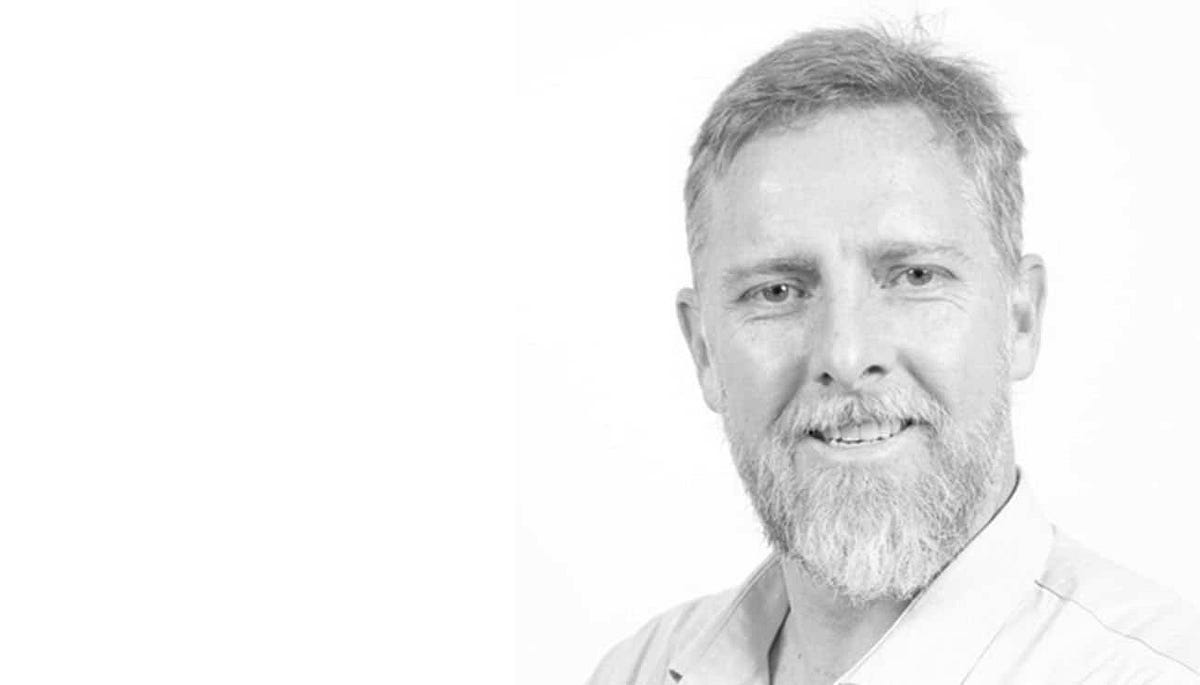“We’ve started a movement that solves a problem that’s bigger than malaria, bigger than even the water problem” With Laurence Cooke

Globally, there’s a massive opportunity to bank the unbanked. It’s the most transformative thing anyone can do, and solves a problem that’s bigger than malaria, bigger than even the water problem. When we are able to bring the poorest people into the financial sector, we’re able to positively affect and grow a nation’s economy. For example, in Uganda, there is no banking outside of the city, and there are very few cities. The rest of the country are subsistence farmers who don’t have bank accounts. We can’t see the transactions they’re making, and we can’t lend them money, so you don’t see that money multiplying. Without banking services, they live in a stagnant economy that doesn’t grow, and there’s no improvement to the standard of living. When you’re able to offer a robust financial system that includes everyone, you’re able to make improvements that change people’s lives. nanopay is able to offer payment services at a fraction of the cost, using a mobile phone to make money transfers, giving individuals the legitimacy to borrow and grow.
I had the pleasure of interviewing Laurence Cooke, CEO and founder of nanopay, a secure, real-time payments platform provider (RTGS). In 2016, nanopay announced its acquisition of MintChip, a digital currency product, from the Royal Canadian Mint and raised more than $10 million in Series A funding, which ultimately led to the development of nanopay’s P2P platform, B2B services and cross-border capabilities.
Thank you so much for doing this with us! What is your “backstory”?
I’m a reformed telecom industry professional. In my past, I’ve worked as COO at Bell Mobility, which is similar to AT&T in the U.S., among other wireless and telecom companies. However, once Apple and Google began owning the customer experience by introducing smartphones, an industry that was once exciting and competitive became boring to operate within, as innovation was now controlled by the few.
As the need for the evolution of payments became apparent, I set out to build an innovative platform that could address those needs. Drawing upon my experience working in an industry that was highly scaled and resilient, I was able to enact real, palpable change. Working with fintech and payments also allowed me to combine my undergraduate degrees — computer science and economics.
Can you share the funniest or most interesting story that happened to you since you began leading your company?
During nanopay’s Series A funding round, we received millions of dollars from our primary investor. Because we were in the midst of acquiring another major technology, MintChip from the Royal Canadian Mint, the money needed to be sent quickly to close the deal. By mistake, the large sum of money was sent twice, so we began the process of sending it back. I remember joking with the investor, saying, “Oh, I thought that money was meant for my personal account.”
Ten days later, when the money was still missing, on hold somewhere in the process of the different partner banks that worked together to transfer the funds. Suddenly, my joke wasn’t so funny anymore.
Eventually, the money did turn up, and everything worked out. However, I learned two valuable lessons:
1. Never joke about a large sum of investment money being in your personal account.
2. The current payment system was severely inadequate. Seeing just how bad the system was first-hand reaffirmed the problem we were trying to solve.
What do you think makes your company stand out during these disruptive times? Can you share a story?
A lot of companies in the space have tried to be disruptive to the entire ecosystem. For instance, cryptocurrency enthusiasts believe that the current currency system is bad and needs to be completely replaced, and blockchain supporters believe only blockchain technology can solve today’s problems. I disagree with both.
At nanopay, we’ve created a solution that’s better, faster and more scalable than blockchain. Our solution is backed by fiat, meaning it works with the existing system instead of against it.
At nanopay, we’re able to offer scalability at a fraction of the cost. Similar to how Elon Musk beats the competition by providing a 10x cost advantage, nanopay’s platform is 100,000 times cheaper than other solutions. We’ve also created a solution that can go to market quickly. While a blockchain company may require a six to nine month deployment process with millions of dollars in consulting fees, nanopay can connect to a bank’s API in a matter of a week.

What advice would you give to other CEOs or founders to help their employees to thrive?
Employees today are totally different than employees in the past, and it’s not only millennials. In the past, it would have been enough for an employee to be paid a decent salary to get them to stick around. Now, employees choose to stay when there is an alignment between the organization’s values and mission with the employee’s values. I would advise other CEOs and founders to offer more than simply building a great company that makes a lot of money. Building a bond with employees will take you further in terms of employee retention.
At nanopay, we’re working to make real, tangible change in the world by giving free transactions to the poorest 2 billion people in the world. We share the pain and the passion of the unbanked and underserved, and we’re working together to change real lives and build economies.
None of us are able to achieve success without some help along the way. Is there a particular person who you are grateful towards who helped get you to where you are? Can you share a story or example?
I am forever grateful to my wife, Melissa, who helped make nanopay a reality. She helped me find our initial investors, leveraging her network, and acted as headhunter to help attract extraordinary talent. We even sold our house to put our own money in the business. Without her, nanopay would have never made it off the ground.
Can you share what you believe will be the “Top 5 Fintech and Banking Trends Over The Next 3 Years” (Please share a story or example for each.)
1. Regulation will transform the fintech agenda.
a. Regulation in Asia and North America will change to cover cryptocurrencies, which will ultimately legitimize some businesses and put others out of businesses.
2. A few cryptos will become unicorns.
a. Many ICOs will be labeled as securities, and the people behind them will be going to jail. However, some will deliver on its promises and deliver a great innovation, emerging as unicorns.
3. Banks will partner with fintechs to survive.
a. Banks will look to engage on innovation with fintechs and other creative solution providers as a means of survival in the changing financial landscape. If banks don’t partner with these companies, systematically, all banking specialists — those who provide advising services, mortgages and more — will begin to be picked off.
4. The developed world will learn from developing markets.
a. In the developing world, everything needs to be done better, faster and cheaper. Payments and banking will become transformative to the third world, allowing them to offer better services and solutions at a much lower price. As a result, the developing world will become the new stage for fintech innovations and developed nations will follow their lead.
5. Money will move with data.
a. Overall, I see the finance industry embracing a series of standards that will allow the industry to move money with data
Can you please give us your favorite “Life Lesson Quote”?
“A’s hire A’s, B’s hire C’s.” — As I’ve built my team, this adage has rang true continuously. People who are the best in their fields are “A’s,” and they tend to hire the people who are as competent or even more so compared to themselves in order to build their teams to the highest potential. “B’s” are usually competent, solid performers, but are far less confident in their abilities, especially compared to “A” colleagues. Consciously or unconsciously, B’s tend to hire “C’s” out of self-preservation, and C’s are only marginally competent.
In order to build the best team, I’ve insisted on hiring only A’s for every position. The people who strive to improve every day, recognize their capabilities and also hire A’s to ensure the best quality output for the company are the best and only option if we are to thrive through all of a company’s stages of growth.

You are a person of great influence. If you could inspire a movement that would bring the most amount of good to the most amount of people, what would that be? You never know what your idea can trigger. 🙂
Globally, there’s a massive opportunity to bank the unbanked. It’s the most transformative thing anyone can do, and solves a problem that’s bigger than malaria, bigger than even the water problem. When we are able to bring the poorest people into the financial sector, we’re able to positively affect and grow a nation’s economy.
For example, in Uganda, there is no banking outside of the city, and there are very few cities. The rest of the country are subsistence farmers who don’t have bank accounts. We can’t see the transactions they’re making, and we can’t lend them money, so you don’t see that money multiplying. Without banking services, they live in a stagnant economy that doesn’t grow, and there’s no improvement to the standard of living. When you’re able to offer a robust financial system that includes everyone, you’re able to make improvements that change people’s lives. nanopay is able to offer payment services at a fraction of the cost, using a mobile phone to make money transfers, giving individuals the legitimacy to borrow and grow.


